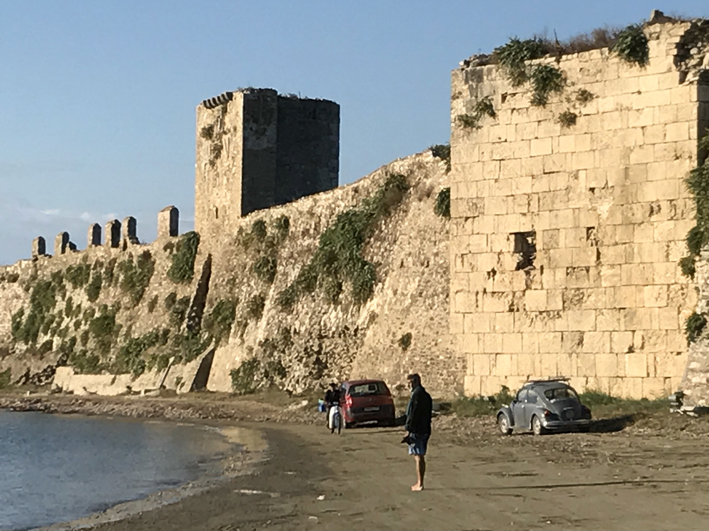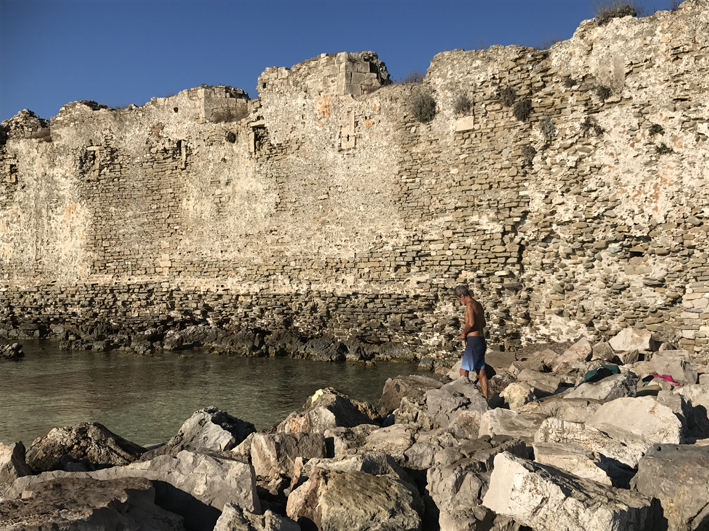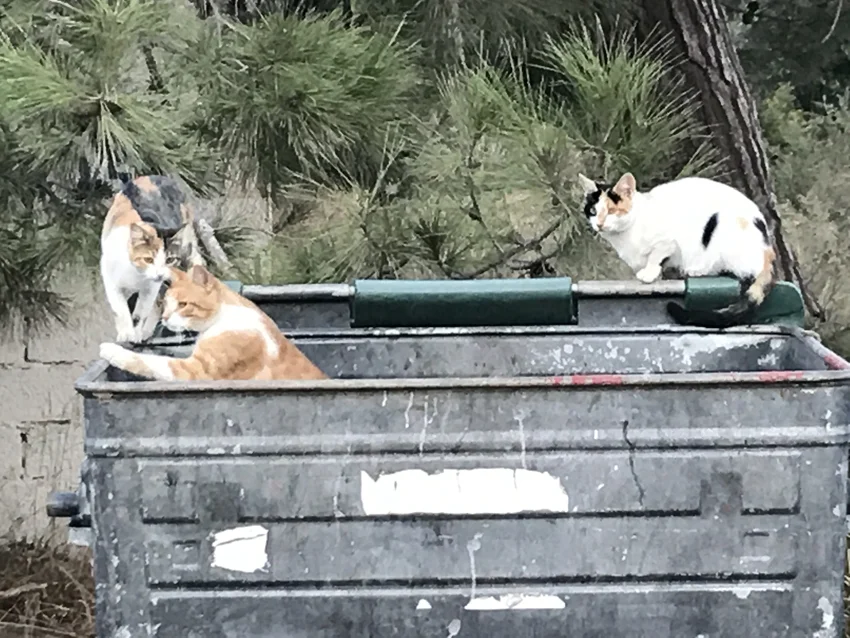A fine ravine for throwing babies. Though we didn't see any...
The Oxford dictionary defines “spartan” as “showing or characterised by austerity or a lack of comfort or luxury”. I’ve always imagined no cushions on one’s chairs, or not wearing a jumper in winter. That sort of thing.
As such, that would be a Serious Understatement of what it was like being a Spartan, particularly a Spartan man.
Basically, Spartan society wasn’t a sort of worthy, monk-like, lack of material possessions. Spartans weren’t simple, frugal souls. They were ruthless warriors who threw weak babies down a ravine and encouraged their teenagers to go into the countryside and slaughter slaves.
Spartan boys (the ones who weren’t thrown into the ravine) only lived with their mothers until they were seven - from then on they stayed in all-male barracks, where they were toughened up by being underfed, suffering ritual beatings (until they bled - and no flinching or crying out allowed), and being sent out of town armed only with a knife and told to survive. If they hunted down and killed a few “helots” (conquered citizens of other states, who were made into slaves and did all the work in the Spartan fields) so much the better.
Once they turned 20, these charming, sophisticated men became full members of the army (the only job available) and they continued fighting until they were killed or, less likely, reached 60 years old. The Spartan army was the scourge of the region - a good many fortress cities were built by neighbouring states to try (often unsuccessfully) to keep the rampaging Spartans out.
One of the rules of being a Spartan warrior was you didn’t get taken prisoner - you returned from a battle either with your shield (victorious) or on it (dead).
That is until 425BC, when in a battle against their long time foes, the Athenians, at Sphacteria near Pylos (10km or so from where we are in Methoni), a few hundred doomed and surrounded Spartans threw down their shields and surrendered. This un-Spartan-like decision shook the ancient world, and the smug Athenians were prompted to be especially aggressive over the next few years. Serve those wussy Spartans right.
Anyway, back to what I was saying about the word “spartan”... whether they had any cushions in their bedchamber or wore a woolly vest under their robes when it was cold would seem to be quite beside the point.





























